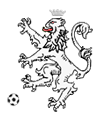
Document | arfsh.com
A document created by arfsh.com for the whole football community
The Free Critic #79
Author: Isaque Argolo | Creation Date: 2023-03-09 17:26:06
Data providers: Isaque Argolo.
I was watching a chess game when, without any checkmate situation at the moment, the other player decided to abandon the game, making a prediction that in the next moves he would lose. I, on the other hand, as I don't play chess — I would love to start, by the way —, I hadn't understood the moves and the main reason why the player had abandoned the game so early. Consequently, I tried to map each applied move, therefore, with a lot of delay, I realized that the fate of the game was sealed even before checkmate happened. In fact, at an incredible speed of reasoning, the experienced chess player was far away from my common thought in front of this incredible game. I went after some scientific articles and interviews with some Grandmasters, and they perfectly explained this reasoning condition. I remember very well that Sindi, Sindelar, the greatest Austrian centre-forward of all-time, was adept at the game — and played it very well. According to Sindelar, chess helped him with his strategies within the four lines. Sindelar, as is a reflection of his game, was one of the brightest, most ingenious, most intelligent players to kick a football. According to some researchs, chess is a very efficient cerebral and cognitive exercise, which stimulates the functioning and extension of memory and neuronal work, such as intelligence, attention, visual-spatial memory and reasoning. This could potentially increase the whole knowledge of a football team if this game was applied to the footballers. I remember several criticisms by Jimmy Hogan about the cognitive capacity of some players, which were very low and with those same players making the worst possible decisions. Today, the game knowledge, the tactical knowledge has decreased by a lot. Only few players have a high level of strategy. Take Lionel Messi, for example, who had an exceptional World Cup as the player who walked the most on the pitch. For what reason does this happen? Messi plays scientific football, in the same way that other brilliant stars of the past played. Messi knows perfectly well when to run, when to pass, where to move and when it's time to save energy for another occasion. Everything on the pitch is mapped out by Messi. This feature of Messi reminds me a lot when Dr. György Sárosi appeared to be completely out of touch with the match. However, Dr. Sárosi just looked, but he wasn't out of touch with the whole game situation. Dr. Sárosi, when he walked on the field, scanned it and noticed the movements of the opposing team, mainly the defensive system. He, consequently, when he received the ball, already had a perfectly calculated plan, through quick combinations, to break any defensive system. Dr. Sárosi, like a chess player, was already several moves ahead of his opponent, in addition to having several moves in his repertoire that could break defensive patterns. He was a very smart player indeed. Alfréd Schaffer, when he changed his style of play, also became a more cerebral centre-forward. Charlie Buchan was a genius of positioning and defensive gaps finding. Of the oldest, John Goodall was a master of schemes and how to find holes, gaps in opposing defenses and how to organize the offensive line to play directly into those opposing gaps. Of the geniuses who appeared playing in more restricted lines, with less space and with two or three defenders always constantly marking them, the aforementioned Matthias Sindelar and the Hungarian György Orth stand out for their knowledge far above average. Both were players who could solve complex problems, simply and with very high speed. This advanced game knowledge aligned with the vast repertoire of technical tricks benefited them on a large scale. In just the blink of an eye from the public, Orth, for example, caused a goal situation to be created. It was the hallmark of genius. I don't remember if Gyuri also played chess, but he certainly, in addition to his advanced reading of the game, trained several times in these situations that seemed to have no solution. In the old MTK trainings, offensive combinations were constantly performed, mainly situations where the centre-forward had to connect the two sides of the offensive system. Orth was constantly presented with several complicated situations where he had to solve the problem as quickly as possible. Consequently, just like a chess Grandmaster, Orth refined his reasoning even further, becoming a true genius on the field. This type of specific training no longer happens these days. In my opinion, a centre-forward who has traits for criativity, scheming, planning, organizing — a false 9, precisely —, trained with constancy in difficult situations can become a genius at finding spaces, resolving problems, creating chances and many other aspects of the game. This type of player would be even better than the typical goal-scorer.
© arfsh.com & Isaque Argolo 2024. All Rights Reserved.